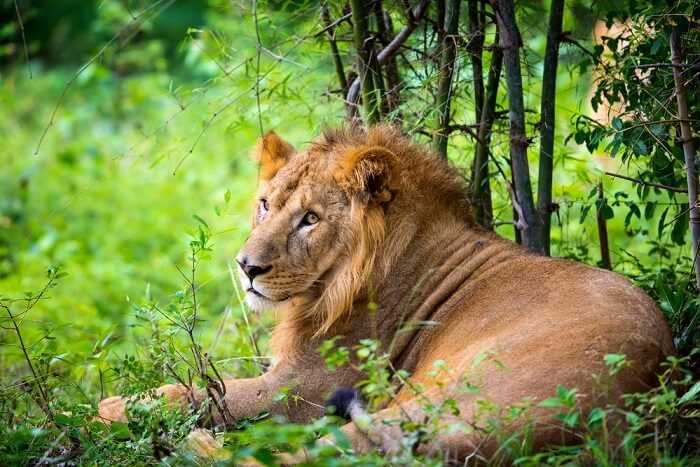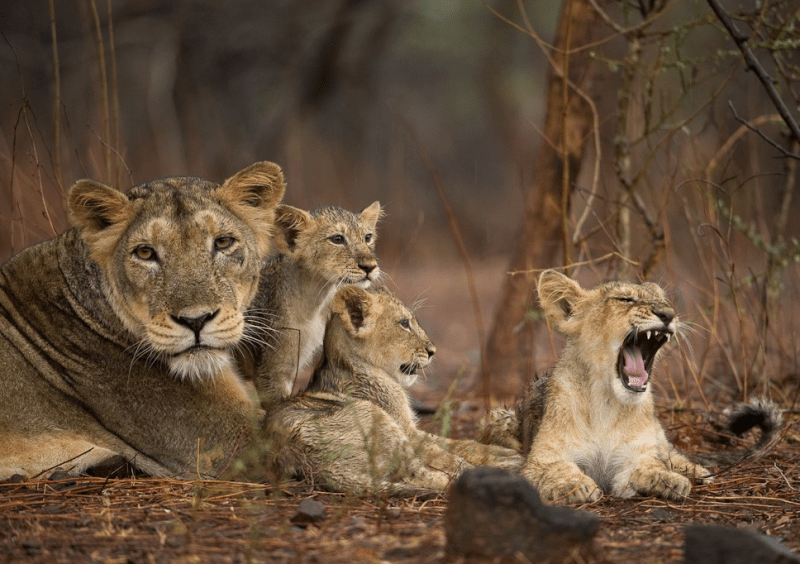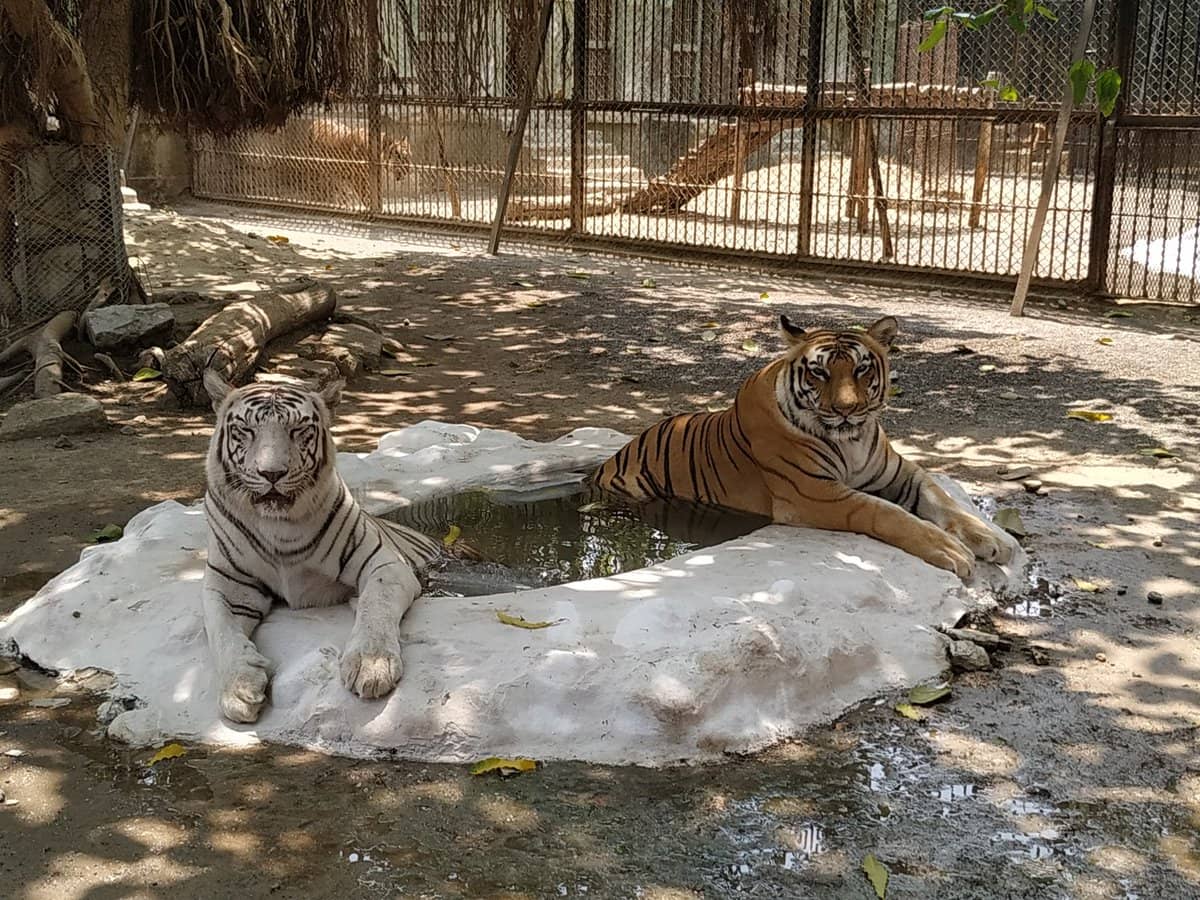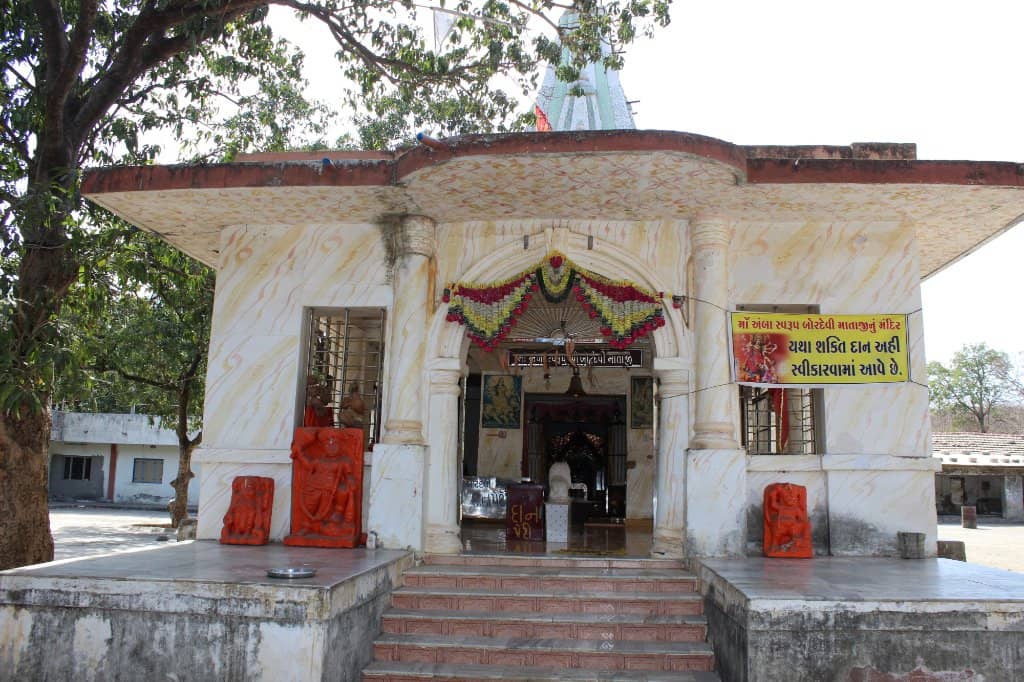

Gir National Park and Wildlife Sanctuary is the only remaining home for the Asiatic Lions.
Located in Talala Gir in Gujarat, the Sanctuary is a part of Kathiawar- Gir dry deciduous
forests ecoregion. Gir National Park is closed from 16 June to 15 October every year and the
best time for wildlife spotting is April and May.
Gir provides you with the unique experience of visiting a place which almost singularly plays a
crucial and defining role in the preservation and sustaining of a certain species. The
preservation of these lions was initiated by the Nawab of Junagadh when these were just about to
enter the phase of extinction due to hunting.
The official count said that there were 411 lions in 2010. Also, there are roughly different
2375 species of fauna here with 38 species of mammals, over 300 species of birds, 37 species of
reptiles and over 2000 species of insects. Other important wildlife forms found here are
leopard, chausingha, spotted deer, hyena, sambar deer and chinkara.

At a distance of 2 km from Junagadh Junction, Sakkarbaug Zoo is a massive zoo park situated in
Dolatpara locality of Junagadh. Also known as Junagadh Zoo, it is the second oldest zoo in India
and among the must include places in Junagadh Packages.
The Sakkarbaug Zoo was established in the year 1863 AD by the Babi Nawabs of Junagadh state.
Spread over an area of 490 acres, it is the fourth biggest zoo in India and the oldest zoo in
Gujarat. The Nawabs of Junagadh has set up this zoo for saving the Asiatic Lions, as those days
hunting among Nawabs and the princes from nearby areas were most common. The zoo provides
purebred Asiatic lions for the Indian and the international endangered species captive breeding
program for the critically endangered species.
The zoo authorities are famed for having wild and free moving Asiatic lions that have been wiped
out from most of Asia and are nowadays found only in the nearby Gir Forest. Apart from the
Asiatic lions, the Junagadh Zoo is home to 700 mammalian species, 115 reptiles, and 200 hundred
birds. Chowsingha or the four-horned antelopes, Indian Leopards, chital, sambar, blackbucks,
black panther, hippopotamus, Bengal tiger, elephant, spotted deer, flying squirrel, monkey, etc.
are the main animal species found in the zoo.
In 2009, Sakkarbaug Zoo turned into the main zoo in India to hold African cheetahs when it
exchanged three of its lions with a Singapore zoo for two sets of cheetahs. In 2011 the zoo
received Indian gaur, Malabar giant squirrels, marmosets and green pheasants from Mysore Zoo in
exchange for a pair of Asian lions. Besides, there are different types of birds like Malabar
Pheasant, red-breast partridge, geese, swan, duck, and much more.

In 2003, the zoo management inaugurated a natural history museum in a large hall in the
veterinary hospital. The museum opened with the skeletons of two Asiatic lions, as well as
panther, deer, wild boar, antelope, black buck, blue bull, and spotted deer. Eggs, beaks, and
feathers of various birds were also on display. The museum organizes seminars and travel
sessions regularly for the benefit of the tourists.
Timings: 9 AM to 12.15 PM & 3 PM to 6 PM, Closed on Wednesday
Bordevi Temple is the last spiritual place on the Girnar Parikrama. It is around 9 km from
Bhavnath Taleti and devotee can reach here after 4 KM of Girnar Parikrama walk. Bordevi Temple
is surrounded by quite beautiful and natural environment in dense forest of Gir. There is one
very old and big Boradi tree in temple complex thus this temple is named as Bordevi Temple. In
the surrounding area, various fruit tree and Ayurvedic medicine tree along with ancient relics
are found. There is a nice open ground in the back of the temple for little relaxation and this
place gets more pleasant in monsoon season.
Forest entry gate is right next to taleti where you have to take permission and one has to come
back before 6 pm. This motorable road is worth visiting if you love serenity and jungle. Temple
is dedicated to maa Bordevi - a form of Maa Amba. There is a nice open ground in the back of the
temple for little relaxation. Carry enough water and food as nothing is available once you
inside jungle. If you are lucky enough you can spot some wild animal also.
